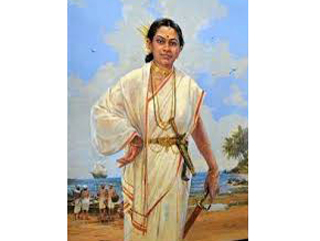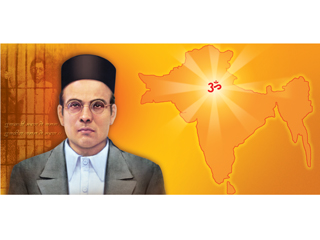 The year was 1555. Portuguese colonial power was at its peak in the 1500’s. They destroyed Zamorins of Calicut, defeated the Sultan of Bijapur. They took away Daman from the Sultan of Gujarat and established a colony in Mylapore. They also captured Mumbai (Bombay) and made Goa their headquarters. And while they were at it, pretty much unchallenged, they even ruined the ancient Kapaleshwar Temple to build a church over it.
The year was 1555. Portuguese colonial power was at its peak in the 1500’s. They destroyed Zamorins of Calicut, defeated the Sultan of Bijapur. They took away Daman from the Sultan of Gujarat and established a colony in Mylapore. They also captured Mumbai (Bombay) and made Goa their headquarters. And while they were at it, pretty much unchallenged, they even ruined the ancient Kapaleshwar Temple to build a church over it.
Their next target was the super profitable port of Mangalore. Their only bad luck – just 14 kilometers south of Mangalore was the small settlement of Ullal – ruled then by a feisty 30-year-old woman – Rani Abbakka Chowtha. Initially, they took her lightly and sent a few boats and soldiers to capture and bring her back to Goa. Those boats never came back.
Shocked and enraged, they sent a huge fleet of ships this time, under the command of much celebrated Admiral Dom Álvaro da Silveira – The Admiral soon returned, badly injured and empty-handed. Thereafter, another Portuguese fleet was sent – only a few injured from the crew managed to make it back. Then the Portuguese went on to capture the Mangalore port and the fort anyways, perhaps planning to tackle Rani Abbakka Chowtha from the convenient distance of the Mangalore fort.
After the successful capture of Mangalore, a huge army under João Peixoto, an experienced Portuguese General, was sent to Ullal. The brief was simple : Subjugate Ullal and capture Abbakka Chowtha. The plan was foolproof – there was no way a 30- year-old woman with a few men could withstand the might of an army of thousands with advanced weapons. The Portuguese reached Ullal and found it deserted. Abbakka was nowhere in sight.
They roamed around, relaxed and thanked their stars – Just when they were about to call it a victory – Rani Chowtha attacked with 200 of her chosen men – there was chaos all around and many Portuguese lost their lives even without a fight. General João Peixoto was assassinated, 70 Portuguese were captured and the rest just ran away.
Rani Abbakka Chowtha rode with her men towards Mangalore that same night, and laid a siege of the Mangalore fort – She not just broke inside the fort successfully – but assassinated Admiral Mascarenhas the Chief of the Portuguese power there and forced the remaining Portuguese to vacate the fort. She didn’t just stop at this but went on to even capture the Portuguese settlement at Kundapura, a full 100 kms., north of Mangalore – just to make a point.
The Portuguese finally managed to get back at Rani Abbakka Chowtha by convincing her estranged husband, to betray for money. She was arrested and put in the prison where she revolted again and was killed while trying to escape. Rani Abbakka Chowtha was a Jain who fought against the Portuguese for four decades, with an army comprising of both Hindus and Muslims, a full 300 years before the First War of Indian Independence in 1857.
What did we do to her, as a mark of our respect and gratitude ? – We just forgot her.
We didn’t name our girls after her. We didn’t even teach her stories to our children. Yes we did release a Postal Stamp in her name, named a boat after her and erected 2 statues – yes, just 2 statues in the whole of India for someone who should be our national hero. The Indian Coast Guard ship ICGS Rani Abbakka the 1st of a series of 5 inshore patrol vessels built at Hindustan Shipyard Ltd is named after Abbakka Mahadevi.
We might have got to read a chapter about her in our text books, had she been a European or an American. Many talk about her being the last Indian to have the power of the agni-ban. In all this cacophony, our generation has lost a great hero – a great source of inspiration. Still wondering why you’ve not heard about her yet ?
(Courtesy : HinduJagruti.org)
(Editor’s note : There are many Indian warriors who valiantly fought the British and Muslim invaders in the last 1,200 years of Indian subjugation. However, except for a few names of these heroes, the rest have been forgotten by us due to neglect and our politicians since they were not ‘political correct’ for them. We entreat our readers to send us details of such ‘Unsung heroes of India’ along with their brief introduction.)

 Maharashtra ITIs to be named after legendary figures and freedom fighters
Maharashtra ITIs to be named after legendary figures and freedom fighters Savarkar’s stories of sacrifice, courage and determination are still inspiring
Savarkar’s stories of sacrifice, courage and determination are still inspiring Marita Marita Mareto Zunjen (I welcome death, but fight I will) : goosebumps guaranteed !
Marita Marita Mareto Zunjen (I welcome death, but fight I will) : goosebumps guaranteed ! Do not link Netaji with Savarkar; Netaji was a secular leader : Chandrakumar Bose
Do not link Netaji with Savarkar; Netaji was a secular leader : Chandrakumar Bose The Unsung Hero of our Freedom Struggle Veer Savarkar Smritidin (Date) : 26th February
The Unsung Hero of our Freedom Struggle Veer Savarkar Smritidin (Date) : 26th February Lokmanya Tilak had changed the direction of the freedom struggle : PM Modi
Lokmanya Tilak had changed the direction of the freedom struggle : PM Modi